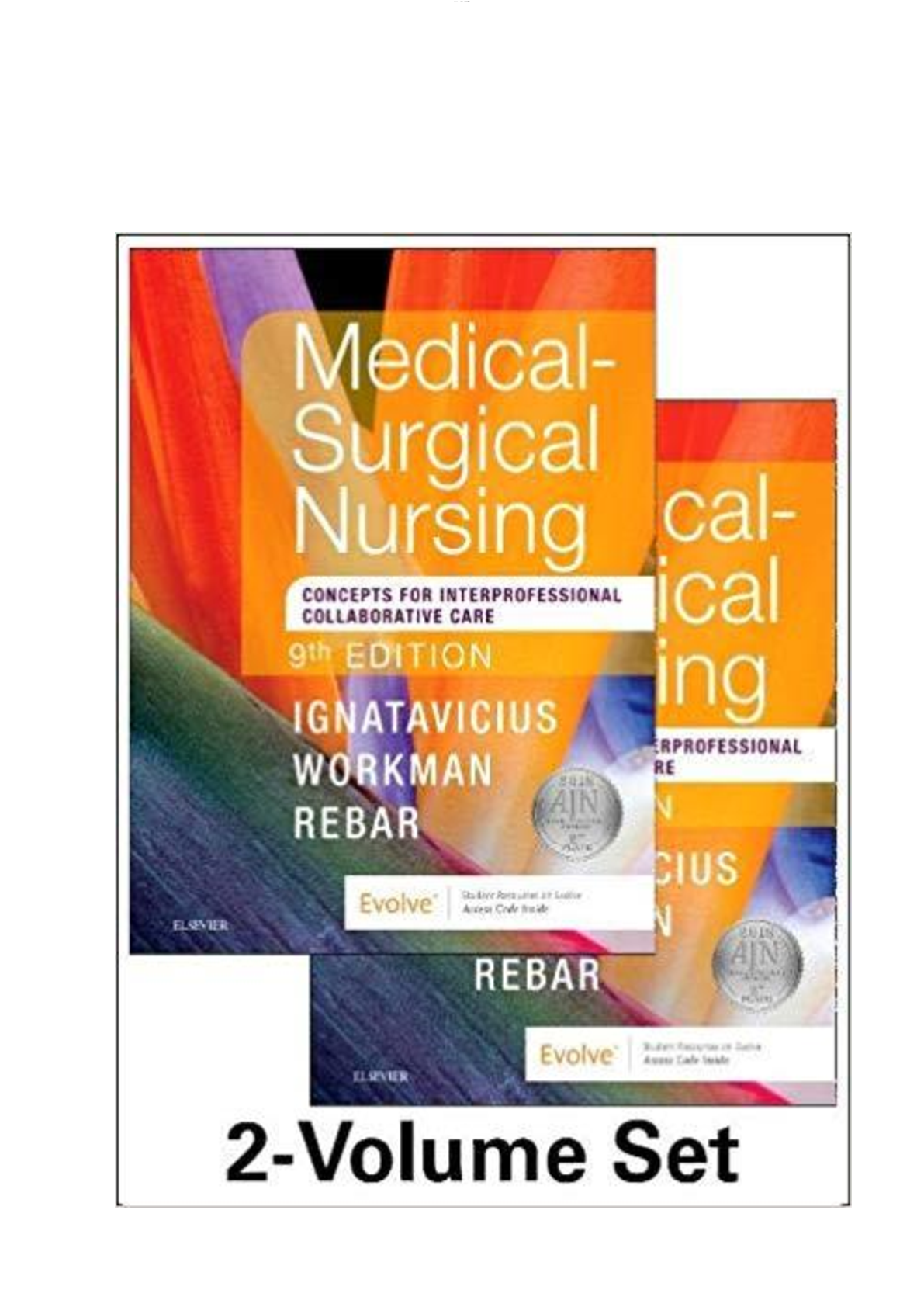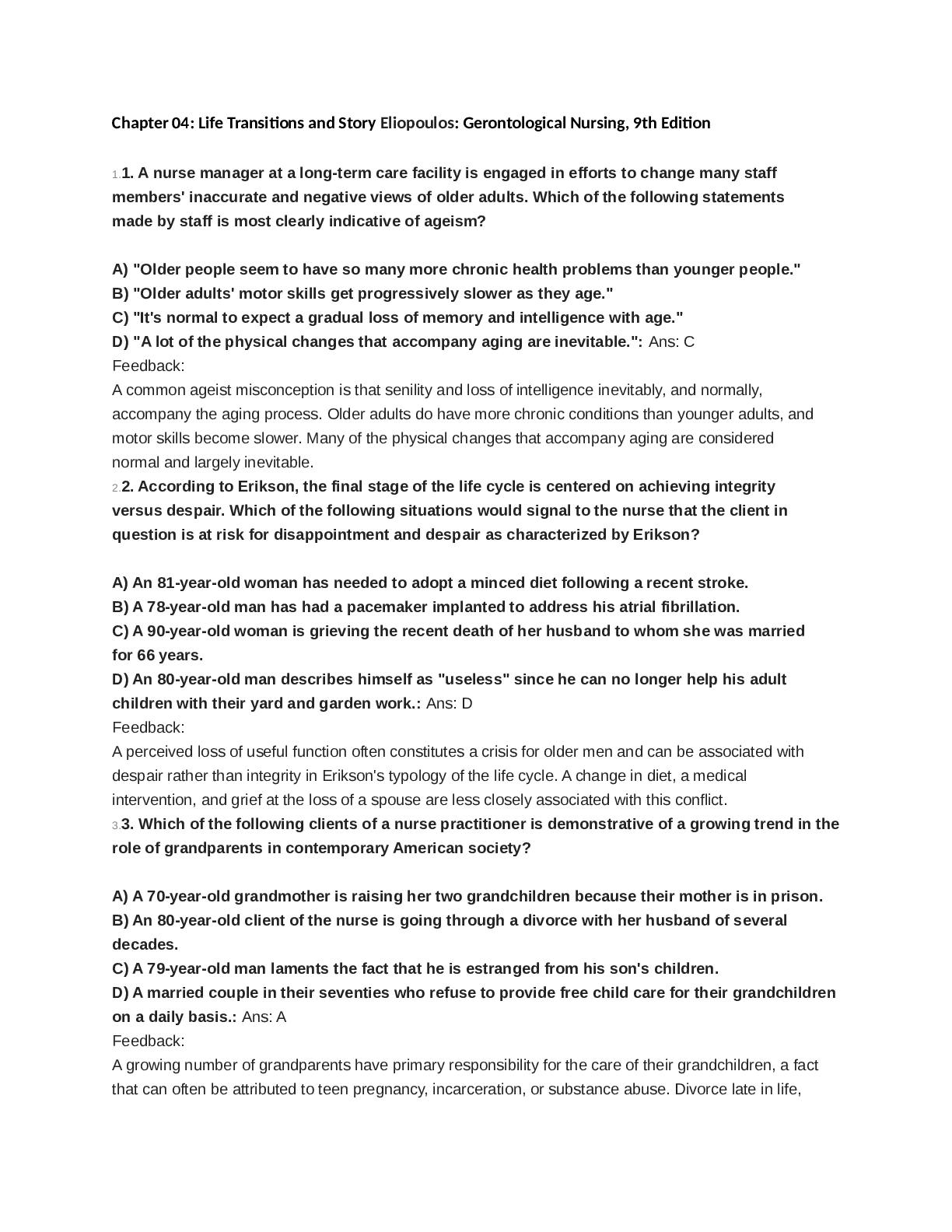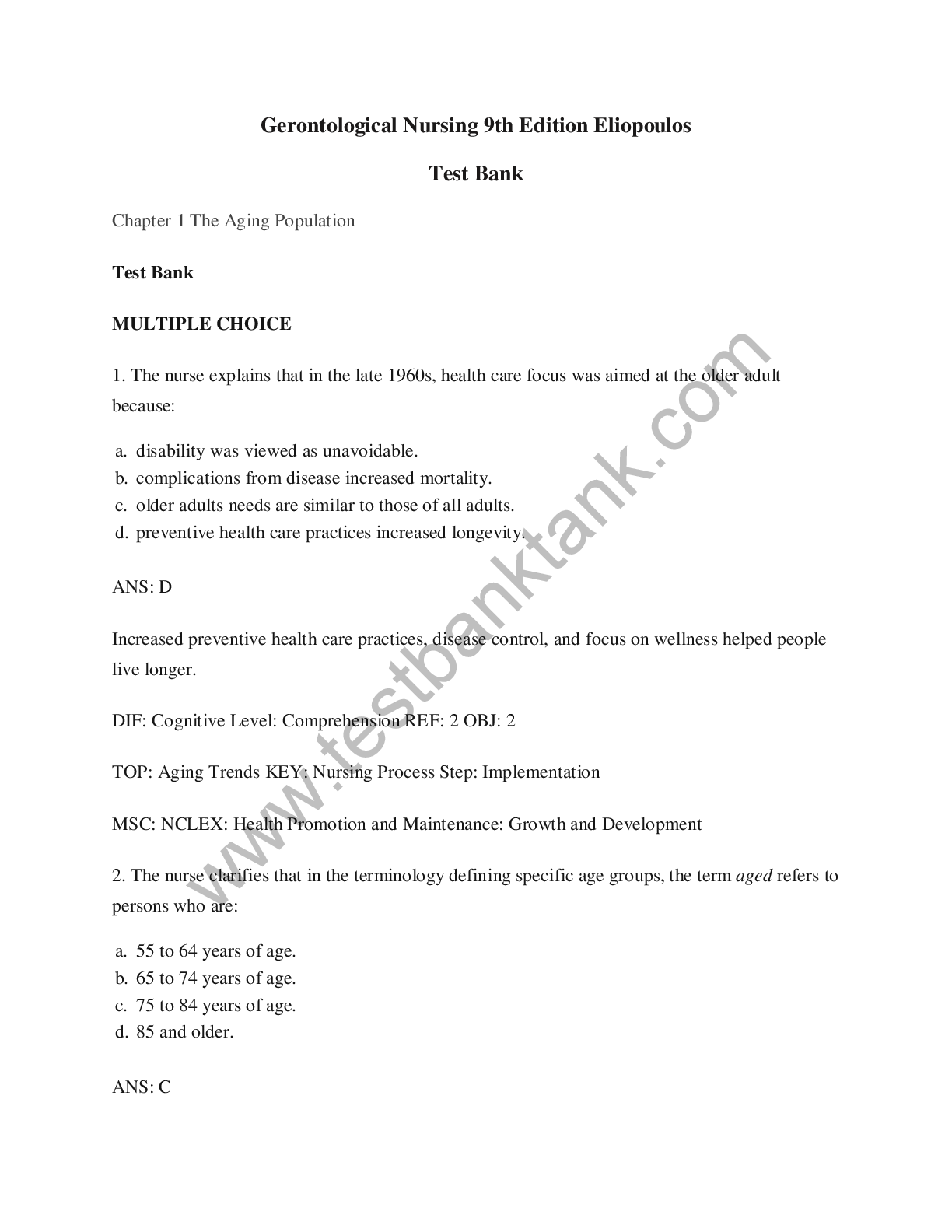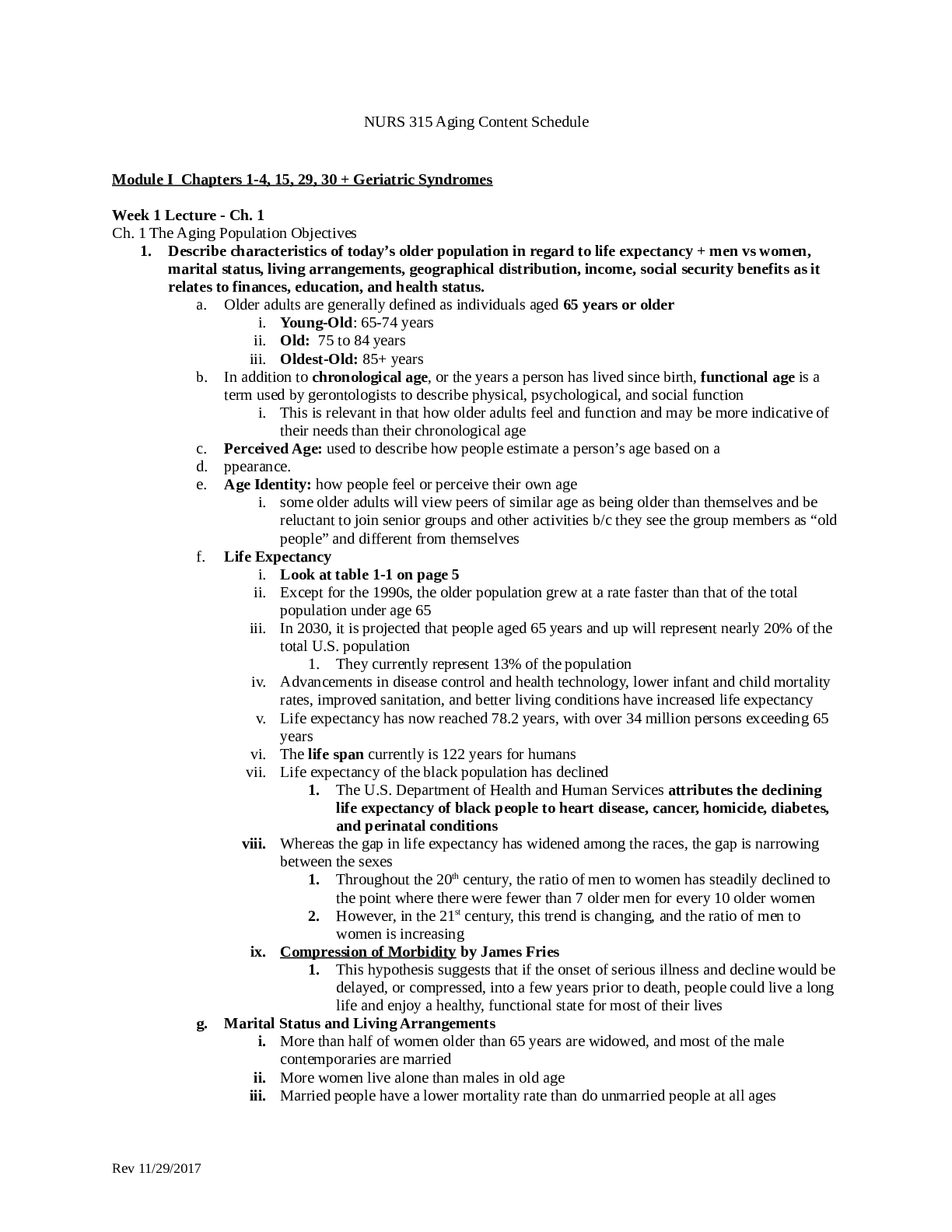*NURSING > EXAM > Perioperative ATI Chapter 94 / Med-Surg Chapters 17, 18, &19 Week 19(download to score good grade) (All)
Perioperative ATI Chapter 94 / Med-Surg Chapters 17, 18, &19 Week 19(download to score good grade)
Document Content and Description Below
Perioperative ATI Chapter 94 / Med-Surg Chapters 17, 18, &19 Week 1 Perioperative Nursing • 3 phases –. Informed Consent • Informed Consent is the patient’s autonomous decision about w... hether to undergo a surgical procedure. Preoperative Assessment • Patient Education: Surgical Team o Treatment goals are discontinuing anesthesia immediately. Decrease metabolism, reverse metabolic and respiratory acidosis, correct dysrhythmias, decrease body temperature, provide oxygen, correct electrolyte imbalance. Postoperative • Postoperative period extends from the time the patient leaves the OR until the last follow- up visit with the surgeon. Nursing Management Care • Provide care until the patient has recovered from the effects of anesthesia including, the patient is oriented, has stable vital signs, and shows no evidence of hemorrhage or other complications. • Frequent assessment of airway, respiratory function, cardiovascular function, skin color, level of consciousness, and ability to respond to commands. • Hypotension can result from blood loss, hypoventilation, position changes, pooling of blood in the extremities or side effects of medications and anesthetics. (most common blood loss and plasma loss exceeds 500mL) • Shock can occur as a result of hypovolemia and decreased intravascular volume. o Signs of hypovolemic shock include pallor, cool moist skin; rapid breathing; cyanosis of the lips, gums, and tongue; rapid, weak, thread pulse; narrowing pulse pressure; low blood pressure; and concentrated urine. • Hemorrhage can present insidiously or emergently at any time in the immediate postoperative period or up to several days after surgery. o Signs: Hypotension; Rapid, thready pulse; disorientation; restlessness; oliguria; and cold pale skin. o Early phase will result in feeling of apprehension, decreased cardiac output, and vascular resistance. Breathing becomes labored and “air hunger”, will be exhibited; patient will feel cold and may experience tinnitus. • Hypertension and Dysrhythmia: Common in immediate postoperative period. Associated with electrolyte imbalance, altered respiratory function, pain, hypothermia, stress, and anesthetic agents. [Show More]
Last updated: 1 year ago
Preview 1 out of 4 pages
Instant download
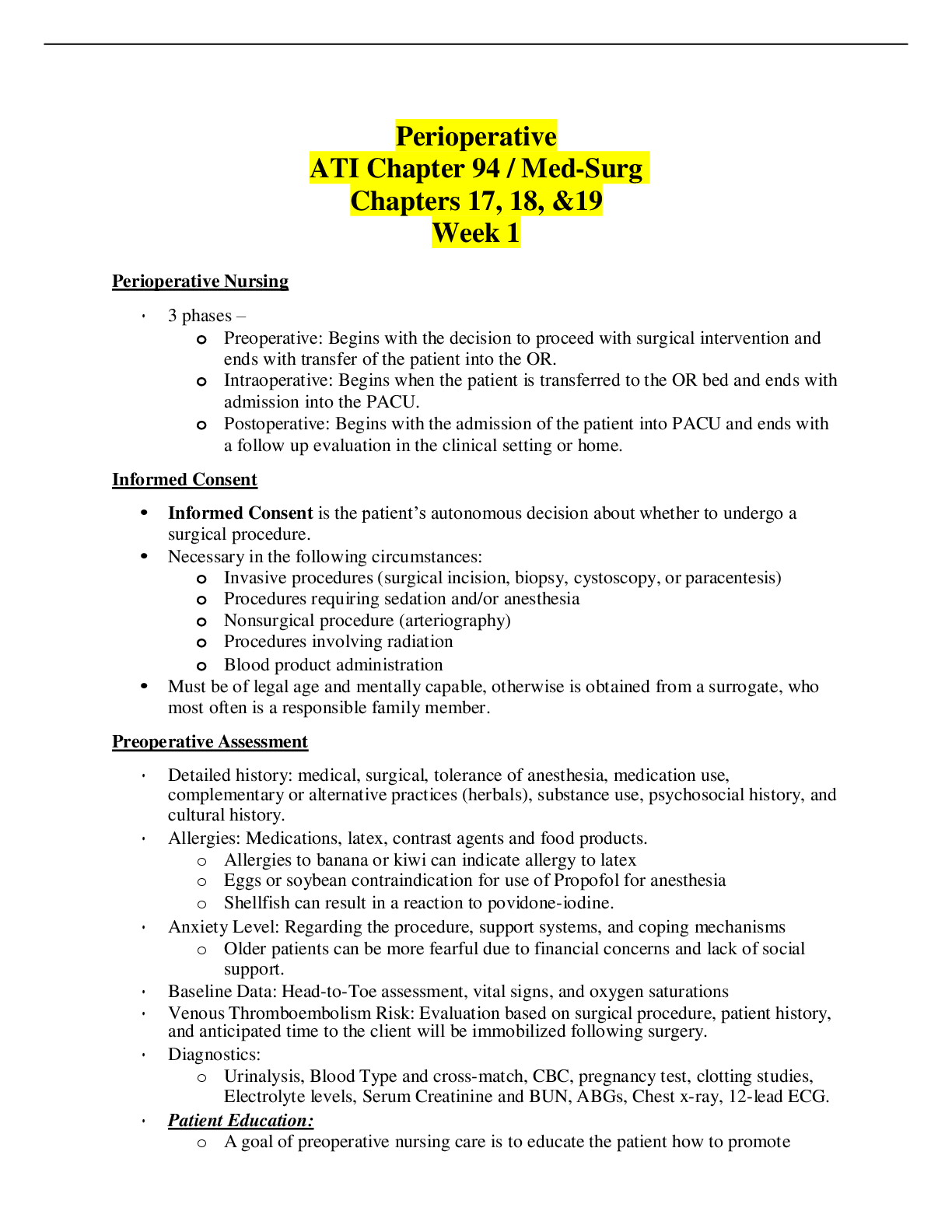
Buy this document to get the full access instantly
Instant Download Access after purchase
Add to cartInstant download
Reviews( 0 )
Document information
Connected school, study & course
About the document
Uploaded On
Jul 30, 2021
Number of pages
4
Written in
Additional information
This document has been written for:
Uploaded
Jul 30, 2021
Downloads
0
Views
46

